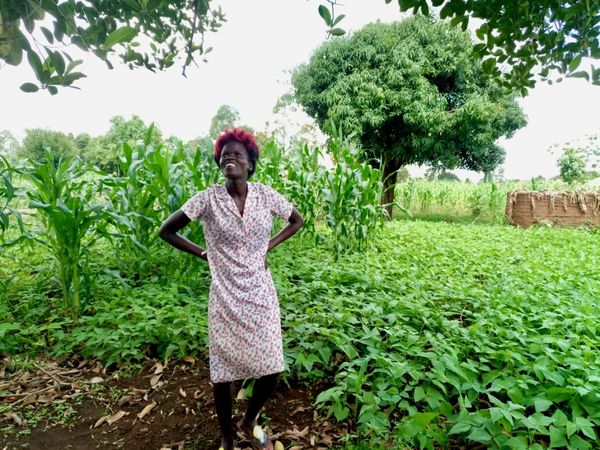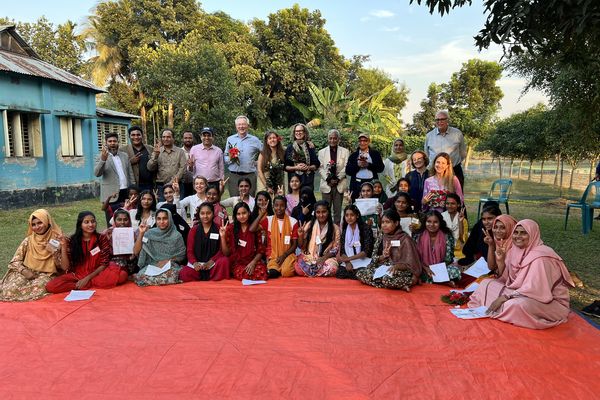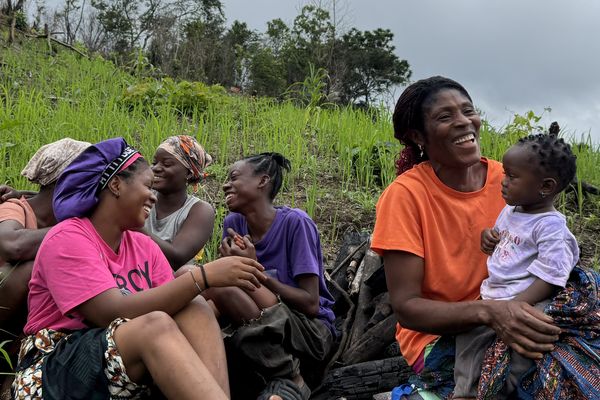BY SARAH ALLEN
Each year on June 20th, World Refugee Day honors the courage and resilience of millions of refugees worldwide and serves as a powerful reminder of their strength.
But World Refugee Day is also a reminder of the significant threats to prosperity and progress that our global community faces. Today, we are witnessing the highest levels of displacement ever recorded, with 100 million people around the world displaced as a result of persecution, conflict, violence, or disasters. More than 27 million of those people are refugees who have been forced to flee their home countries seeking safety and protection.
These refugees, who are disproportionately women and children, face immense challenges and uncertainties as they strive to rebuild their lives, including limited access to basic services, healthcare, education, and livelihood opportunities.
On World Refugee Day, BRAC recognizes the urgency of addressing these multifaceted needs and reaffirms its commitment to standing with refugee families. Discover three ways we can uplift refugees.
1. Promoting refugee entrepreneurship
Refugees are not merely passive recipients of aid: They are active participants in rebuilding their lives and contributing to their communities. Refugees have remarkable potential, skills, and ambitions waiting to be harnessed—but they often lack the opportunity and circumstances to do so.
BRAC recognizes the tremendous potential of refugees—and particularly women refugees, who disproportionately lack resources and opportunities. By providing vocational training, financial literacy education, access to microloans, and support to start small businesses, BRAC fosters the entrepreneurial spirit that thrives within refugee communities and empowers them not only to earn income and become self-reliant, but to drive innovation and growth within their communities.
Victoria, age 37, fled to Uganda in 2017 with her five children in the wake of war in her native South Sudan. Although she received a small piece of land from the government to set up a temporary house, she still struggled to afford food, health care, and education for her family. But when she joined BRAC’s Ultra-Poor Graduation program for refugees, she learned how to become an entrepreneur, run a business, and manage her finances.
After receiving goats, chickens, and a stipend from BRAC, Victoria started a small farm and planted a vegetable garden. After growing her farm and her income, she took out a microloan from BRAC and used her business savvy to start a small business where she sells silverfish, tomatoes, onions, and grains in the local market. Now, she is a successful entrepreneur with multiple streams of income that are supporting her family and contributing to her community.
When we recognize and invest in the potential of women like Victoria and promote refugee entrepreneurship, the benefits spread across families and communities.
2. Nurturing the potential of young refugees
Half of refugees around the world are children, and they often lack access to basic needs and fundamental rights, such as education. The youngest refugees, whose brains are in a critical stage of development, are also disproportionately impacted by the trauma of displacement. BRAC is committed to supporting young refugees as they overcome trauma and navigate the challenges they face with strength and determination.
BRAC nurtures the potential of young refugees by providing psychosocial support and counseling services, safe spaces for children to play and learn, and quality early childhood development and education opportunities. We are committed to ensuring education is accessible to all children—regardless of their circumstances—and equipping young minds with the tools they need to thrive.
Harriet, age 32, is a Ugandan woman living in Northern Uganda, where the nearby Rhino and Imvepi is home to more than 100,000 refugees. BRAC recruited and trained Harriet as a Play Leader in one of BRAC’s Humanitarian Play Labs, which are safe spaces for young children in humanitarian contexts to learn, play, and grow. Humanitarian Play Labs iterate on BRAC’s flagship Play Lab model for early childhood development and offer psychosocial support alongside child-centered, play-based learning to support children’s development.
Although Harriet had ten years of experience working with children prior to becoming a Play Leader, she says that this job gives her a different feeling and level of satisfaction. After being trained on play-based pedagogy, Harriet has developed her professional practice and now plays a leading role in adapting the curriculum, regularly engaging with parents and village members to incorporate culturally relevant activities. She loves supporting refugee learners to reach their full potential — and she’s making a big difference in her community in the process.
By nurturing the potential of the youngest refugees, we can restore hope, resilience, and belonging for generations to come.
3. Prioritizing refugee-led solutions
In all of BRAC’s work, we aim to uplift and equip those closest to the challenges of poverty and inequality to drive solutions. Refugees are the ones closest to the refugee crisis, and their unique knowledge and experiences enable them to develop some of the best solutions to their unique challenges and needs.
By actively engaging refugees and harnessing their leadership throughout every step of the process, BRAC’s humanitarian programs empower refugees to shape the solutions that will impact their lives, working alongside them to build sustainable solutions with long-term impact.
After Viola, age 26, fled South Sudan and arrived in Uganda, her family survived on the modest food rations allotted for refugees. She and her husband earned meager wages by finding day jobs, doing hard labor such as digging and moving stone at a quarry. They struggled to provide for their two children and Viola’s visually impaired father. “It has not been easy,” she expressed. “It’s like starting a new life altogether. There are many challenges.”
When Viola joined BRAC’s new two-generation program for refugees in Uganda, her children were enrolled in a Humanitarian Play Lab while she joined the Ultra-Poor Graduation program. While training in life skills, financial literacy, and entrepreneurship, Viola became part of a community of other women participating in the program in her village. Through a weekly forum, the women work together to save and borrow money, swap business tips, discuss parenting, and more. They discuss challenges and issues they face, and come up with solutions. “BRAC has given us hope away from home,” she shared.
We can foster dignity, self-reliance, and hope among refugee communities by prioritizing refugee solutions and enabling refugees’ voice and choice.
There are countless reasons to be inspired by the resilience and strength of refugees. As we commemorate World Refugee Day, we celebrate the remarkable drive of refugees around the world. When we recognize and harness refugees’ potential, they can rebuild their lives, contribute to their host communities, and create a brighter future for themselves and for future generations.
On World Refugee Day, join us by standing with refugees and families in need around the world.
Sarah Allen is Communications Manager at BRAC USA.



